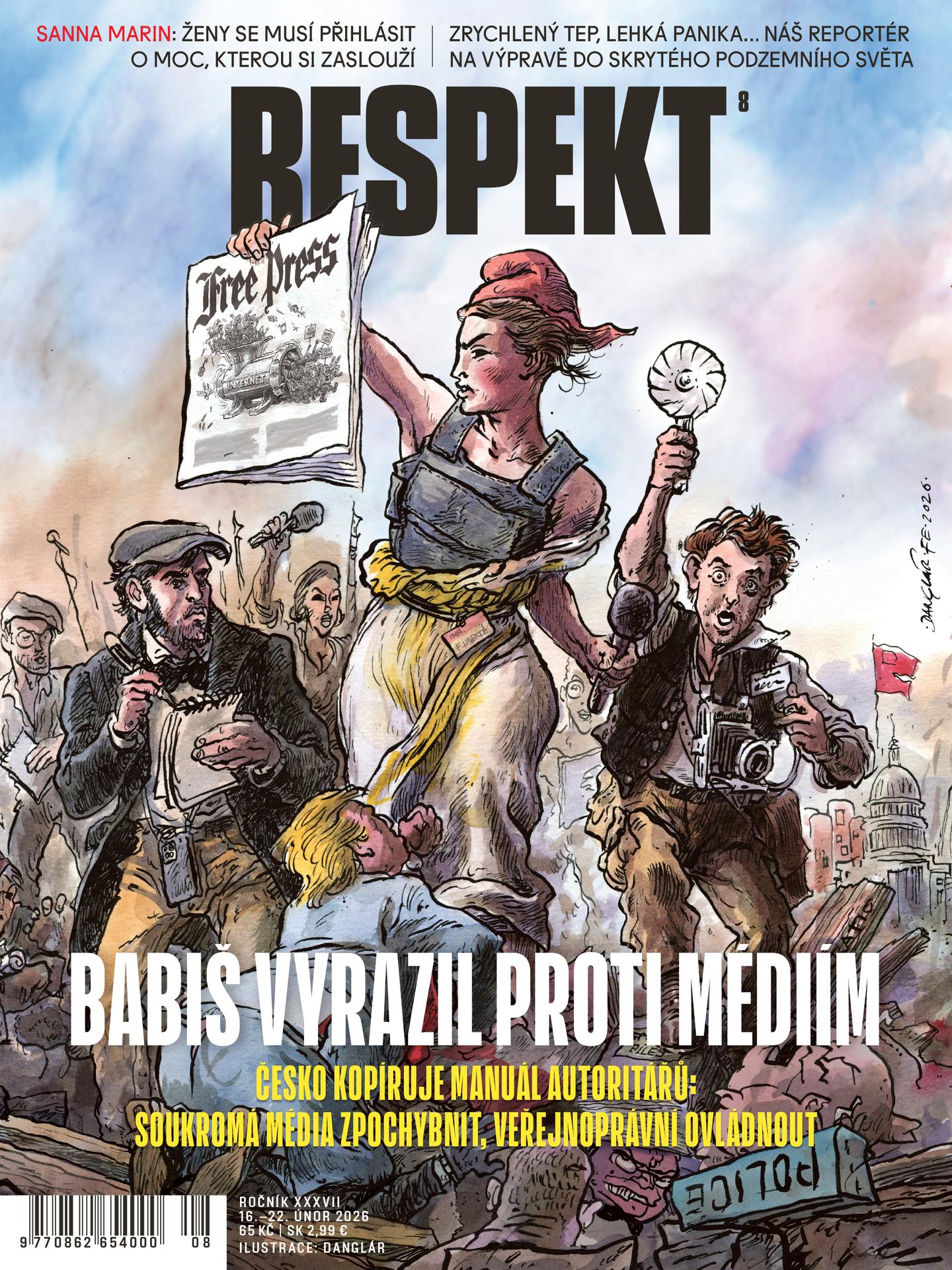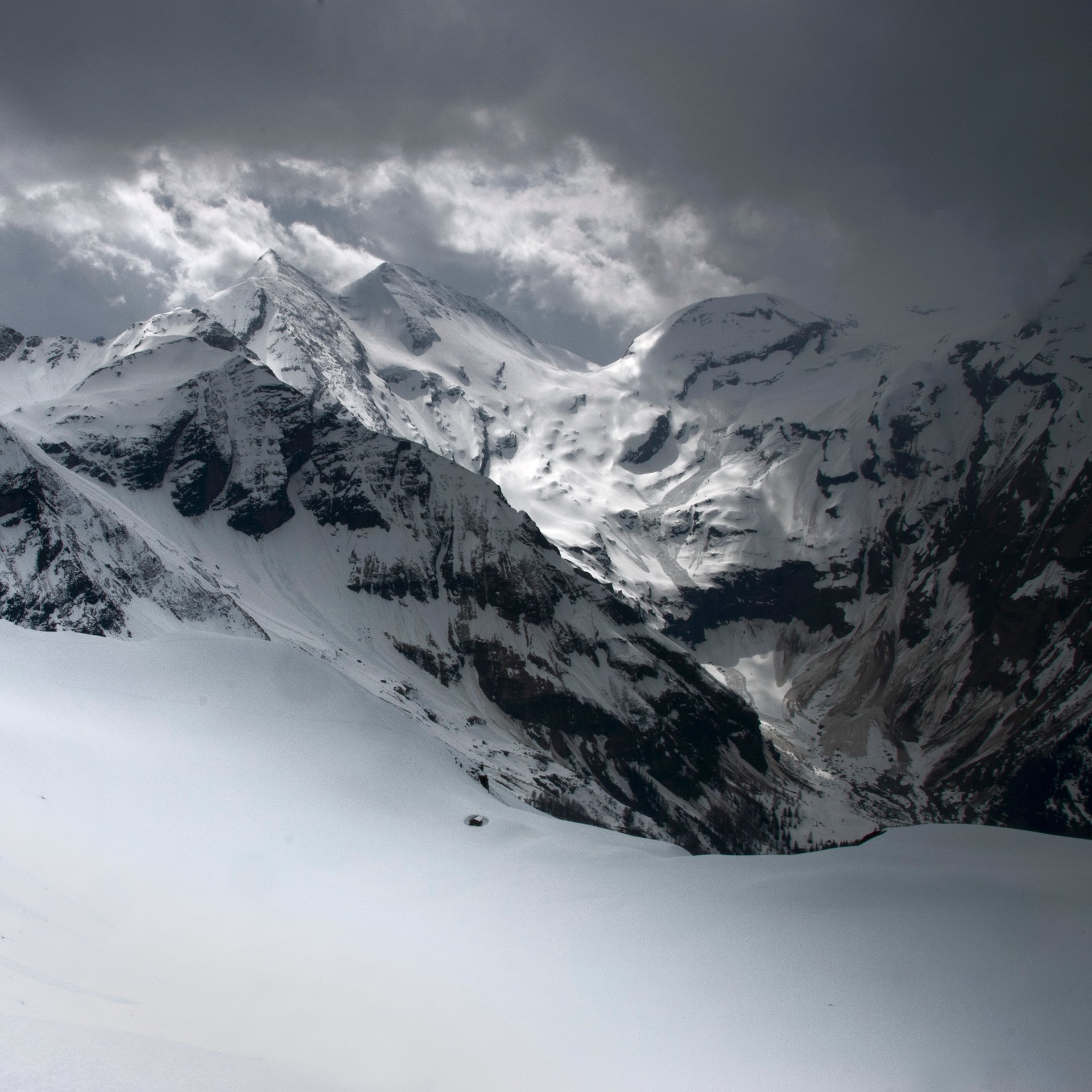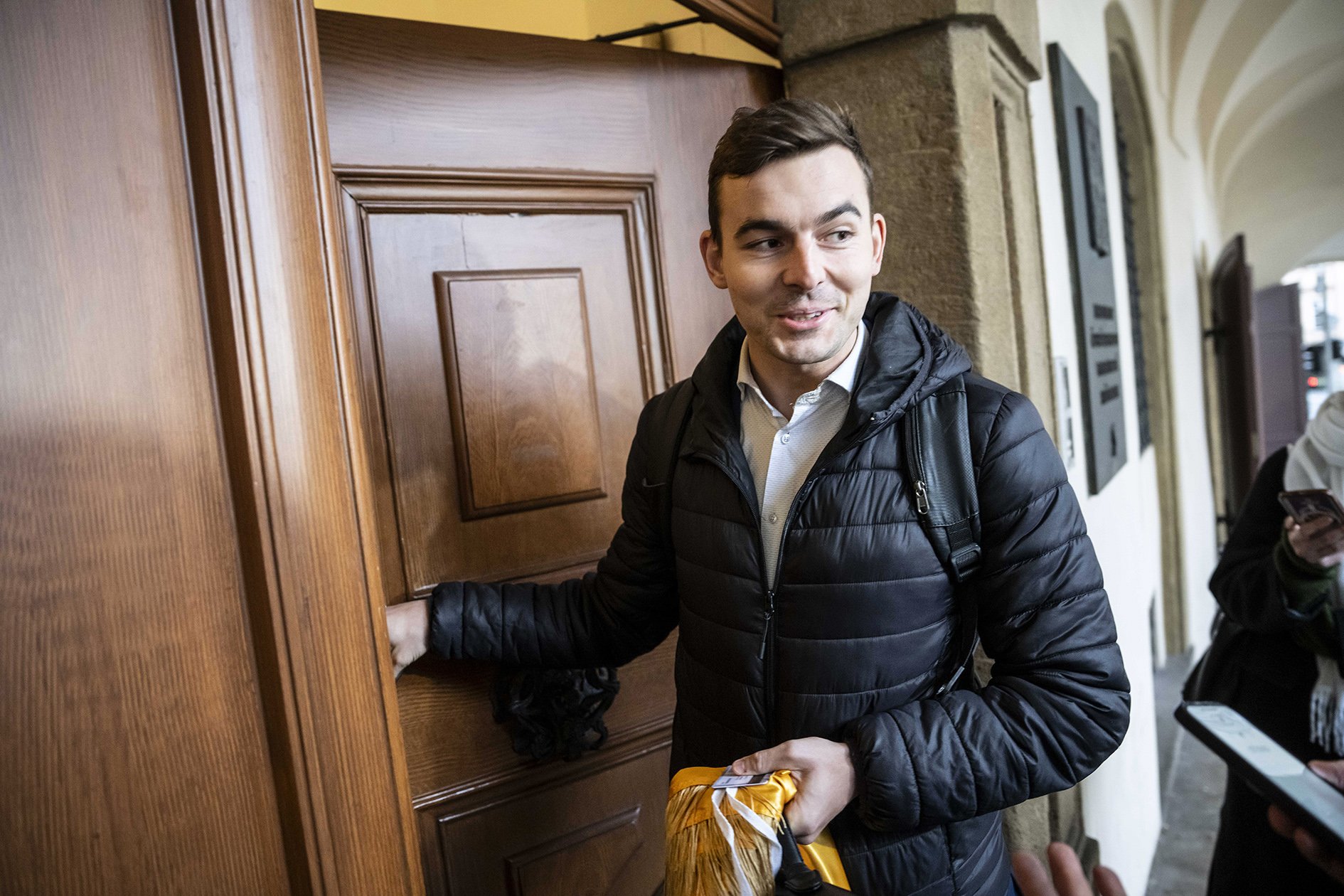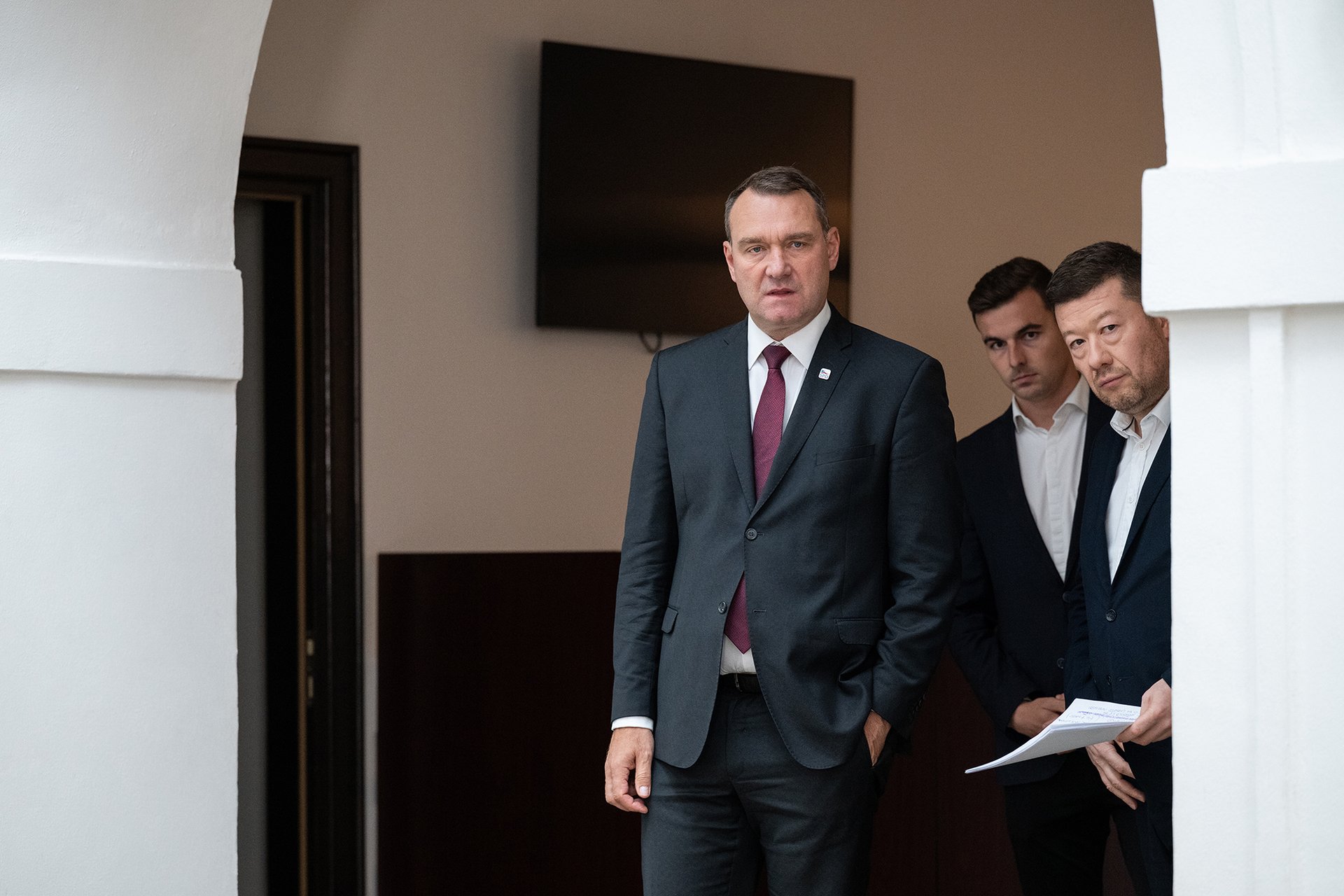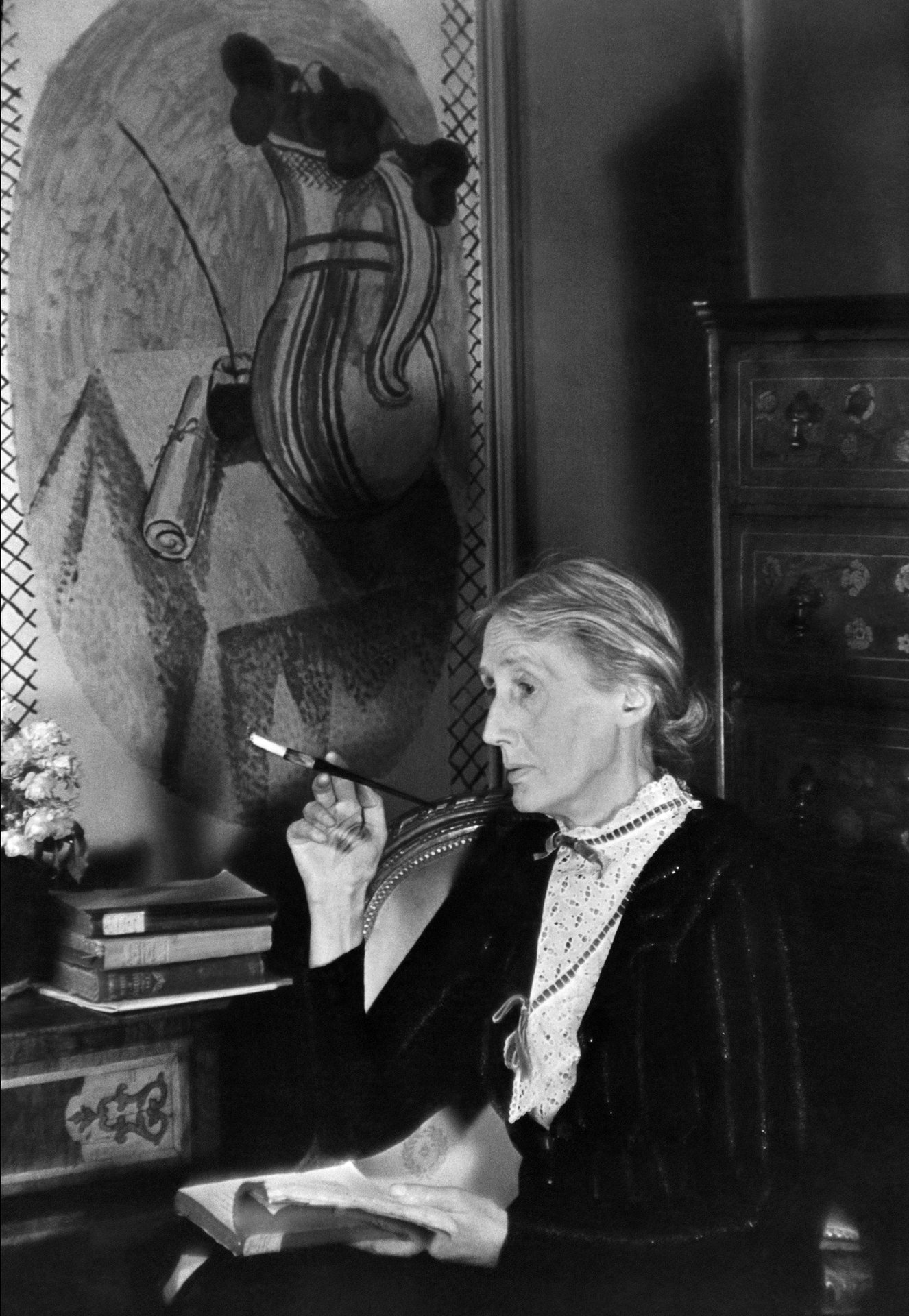Living in Utopia
Lives of even the happiest people among us (or, by common envy-tainted opinion of the un-happy, the luckiest) are far from trouble-free. Not everything works in life as one would like it to work.

Lives of even the happiest people among us (or, by common envy-tainted opinion of the un-happy, the luckiest) are far from trouble-free. Not everything works in life as one would like it to work. Unpleasant and uncomfortable events abound: things and people keep causing us worries which we would not expect them, and certainly not wish them, to cause. But what makes such adversities particularly irksome, is that they tend to come unannounced. They hit us, as we say, ‘as bolts out of the blue’ – so we can’t take precautions and avert the catastrophe, since no one would expect a thunderbolt from a cloudless sky; the suddenness of the blows, their irregularity, their nasty ability to appear from anywhere and at any moment, make them unpredictable, and us defenceless. As far as the dangers are eminently free-floating, freakish and frivolous, we are their sitting targets – we can do pretty little, if anything at all, to prevent them. Such hopelessness of ours is frightening. Uncertainty means fear. No wonder we dream time and again of a world with no accidents. A regular world. A predictable world. A secure world.
‘Utopia’ is the name which we, courtesy of Sir Thomas More, commonly give to such dreams since the 16th century; since the time when the old and apparently timeless routines began to fall apart, old habits and conventions started to show their age, violence became rife, the heretofore omnipotent powers found the emerging realities too unruly to be held in check and too intractable to be tamed in the old and apparently tested ways. Improvisation and experimentation fraught with risks and errors were fast becoming the order of the day.
Sir Thomas, to be sure, knew only too well that his blueprint for a world cleansed of insecurity and fear was but a dream as much as it was a design for good life’s setting: he called that blueprint ‘utopia’, hinting simultaneously on two Greek words: eutopia, that is ‘good society’, and outopia, which meant ‘nowhere’… His numerous followers and imitators, however, were more resolute and so less cautious. They lived in a world already confident, rightly or wrongly and for better or worse, that it had the sagacity needed to design a fear-free world, and the acumen required to lift the ‘is’ to the level of the ‘should-be’. And so they had also the gumption to try both.
For centuries to come, the modern world was to be an optimistic world; a world-living-towards-utopia. It was also to be a world believing that life without utopia is not worth living, while a society without utopia is not livable. If in doubt, one could always rely on the authority of the brightest minds around. For instance, on Oscar Wilde:
A map of the world that does not include Utopia is not worth even glancing at, for it leaves out the one country at which Humanity is always landing. And when Humanity lands there, it looks out, and seeing a better country, sets sail. Progress is the realization of Utopias.
With the benefit of a hindsight, one is inclined to correct the last sentence, though: progress has been more a ‘chase after utopias’ or a ‘running away from the failed ones’ than the ‘realization’ of utopias. Utopias played the role of the rabbit dummy - pursued but never caught in dog races. While realities deemed to be the ‘realizations’ of utopias were invariably found to be ugly carricatures of dreams rather than the things dreamt of and so the overwhelming reason to ‘set sail’ again was the aversion felt to what has been done, rather than the attraction of what may be done yet…
From across the Channel, came another wise man’s, Anatole France’s, opinion, chiming well with Oscar Wilde’s:
Without the Utopias of other times, men would still live in caves, miserable and naked. It was Utopians who traced the lines of the first city… Out of generous dreams come beneficial realites. Utopia is the principle of all progress, and the essay into a better future.
It looks that at the life-time of Anatole France utopias settled so firmly in the day-to-day society’s life, that a human existence without utopia appeared to him not only inferior and terminally flawed, but downright unimaginable. It seemed obvious to France as it was to many of his contemporaries that even the troglodytes had to dream their utopias so that we could live in caves no longer… How otherwise would we have arrived to Hausmann’s Parisian Boulevards? There would be no ‘first city’ without a utopia of city preceding it. Since we always tend to project our own way of life onto other life-forms we wish to understand, it so seemed (and felt all but self-evident) to the generations brought up to chase utopias. And yet, contrary to Anatole France, utopias were born together with modernity and only in the modern atmosphere they could breathe.
First and foremost, utopia is an image of another universe, different from the universe one knows or knows of, and in addition it is a universe originated entirely by human wisdom and devotion – but the idea that human beings can replace the world-that-is with another and different world, entirely of their making, was almost wholly absent from human thought before the advent of modern times. Grindingly monotonous self-reproduction of pre-modern forms of human life gave little occasion and even less prompting to ruminate on alternative forms of human life on earth, except in the shape of apocalypses or the last judgment. To put human imagination at the drawing board on which first utopias were sketched, one needed the accelerating collapse of the human world’s self-reproductive capacity. To be born, utopian dream needed two conditions: first, the overwhelming (even if diffuse and inarticulate) feeling that the world was not functioning properly and had to be attended to and overhauled to set it right; and, second, the confidence in human potency to rise to the task, belief that ‘we, humans, can do it’ - being armed as we are with reason able to spy out what is wrong with the world and find out with what to replace its diseased parts, and with the strength to graft such designs on human reality: in short, the potency to force the world into a shape better fit to the satisfaction of human needs whatever those needs already are or yet may become.
One can say that if pre-modern posture towards the world was akin to that of a gamekeeper, it was the gardener’s attitude that could best serve as a metaphor for the modern world-view and practice.
The main task of a gamekeeper is to defend the land assigned to his wardenship from human interference, in order to defend and preserve, so to speak, it’s ‘natural balance’; gamekeeper’s task is to promptly discover and disable the snares set by poachers and to keep alien, illegitimate hunters away from tresspassing. His services rest on the belief that things are at their best when not tinkered with; that the world is a divine chain of being in which every creature has its rightful and useful place, even if human mental abilities are too limited to comprehend the wisdom, harmony and orderliness of God’s design.
Not so the gardener; he assumes that there would be no order in the world at all, were it not for his constant attention and effort. Gardeners knows better what kind of plants should, and what sort of plants should not grow on the plot entrusted to his care. He works out the desirable arrangement first in his head, and then see to it that this image is engraved on the plot. He forces his pre-conceived vision upon the plot by encouraging the growth of the right type of plants and uprooting and destroying all the others (now re-named ‘weeds’), whose uninvited and unwanted presence disagrees with the overall harmony of the design.
It is the gardeners who tend to be the most ardent producers of utopias. It is on the gardeners’ image of ideal harmony first blueprinted in their heads, that ‘the gardens always land’, prototyping the way in which humanity, to recall Oscar Wilde’s phrase, tends to land in the country called ‘utopia’.
If one hears today phrases like ‘the demise of utopia’ or ‘the end of utopia’ or ‘the fading of utopian imagination’, repeated often enough to take root and settle in common sense and so be taken for self-evident, it is because the gardener’s posture is giving nowadays way to that of the hunter. Unlike both types that prevailed before his tenure, hunters could not care less of the overall ‘balance of things’ - whether ‘natural’, or designed and contrived. The sole task they pursue is another ‘kill’, big enough to fill their game-bags to capacity. Most certainly, they would not consider it to be their task to make sure that the supply of game roaming in the forest will be replenished after the hunt. If the woods have been emptied of game due to the particularly successful hunt, hunters may move swiftly to another relatively unspoiled wilderness, still teeming with would-be hunting trophees. They may suspect that sometime perhaps, in a distant and still undefined future, the planet will run out of undepleted forests. This is not, however, an immediate worry and certainly not their worry, it won’t bear on the results of the present hunt, and so surely this is not a prospect about which a single hunter or a single hunting association would feel obliged to worry, let alone to do something about.
We are all hunters now, or told to be hunters and compelled to act like hunters, on the penalty of eviction from hunting - if not of relegation to the ranks of the game. No wonder then that looking around we see mostly other lonely hunters like us, or hunters hunting in packs which we also occasionally try to do. What we do and see is called ‘individualization’. And we would need to try really hard to spot a gardener who contemplates a predesigned harmony beyond the fence of his private garden and then goes out to to bring ot about. We certainly won’t find a gamekeeper with such vast and sincerely entertained ambitions (that is the prime reason for the people with ‘ecological conscience’ to be alarmed and trying their best to alert the rest of us). That increasingly salient absence is called ‘deregulation’.
It stands to reason that in a world populated mostly by hunters there is no room left for utopian musings; and that not many people would there treat utopian blueprints seriously, were they offered them for consideration. Because even if we knew how to make the world better, the truly puzzling question will be who is likely to be able and wishing to do it… As Jacques Attali recently observed in La voie humaine, ‘nations lost influence on the course of affairs and have abandoned to the forces of globalization all means of orientation in the world’s destination and of the defence against all varieties of fear… Individualism is triumphant. No one, or almost no one, believes any longer that changing lives of others has importance for him or her. No one, or almost no one, believes that voting may change significantly his or her condition, and so the condition of the world’. Roget’s Thesaurus, justly acclaimed for its faithful recording of the successive changes in verbal usages, has every right to list now the concept of the ‘utopian’ in close proximity to ‘fanciful’, ‘fantastic’, ‘fictional’, chimerical’, ‘’air-built’, ‘impractical’, ‘unrealistic’, ‘unreasonable’, or ‘irrational’.
And so: are we indeed witnessing the end of utopia? I suggest to you that if utopia had a tongue and in addition was blessed with Mark Twain’s wit, it would most probably insist that its obituaries have been somewhat exaggerated… Indeed, the utopia with a tongue would have good reasons to say so. Type ‘utopia’ on your computer screen, and Google searching machine will return 4 400 000 websites; an impressive number even by the notoriously excessive internet standards, and hardly a symptom of putrefying corpse or even agonal convulsions.
Let us have however a closer look at the websites listed. The first on the list and arguably the most impressive informs the surfers that ‘Utopia is one of the largest free interactive online games in the world – with over 80 000 players’. Then there are some, scattered here and there, antiquarian references to the history of utopian ideas and to the centres offering courses in that history - the most common among them pointing to Thomas More, the forefather of the whole thing, himself. Altogether however such websites constitute clearly a minority of entries. I would not pretend that I browsed through all four million four hundred thousand entries (such an intention would be perhaps listed among the most utopian of the utopian projects), but the impression I received after reading a statistically decent random sample is that of the term ‘utopia’ having been appropriated mostly by holiday, interior design and cosmetics companies, as well as by fashion houses. All of them offering individual services to individuals seeking individual pleasures and escape from individually suffered discomforts.
And another impression I got: on the rare occasion when the word ‘progress’ appears in the homepages of such commercial websites, it no longer refers to a forward drive. Rather than a chase after a spinning-along utopia, it implies a salvation, a lucky escape; it suggests running away from a breathing-in-the-neck disaster…
Progress seems no longer to be about improvement, but about survival. Progress is thought about no longer in the context of an urge to rush ahead, but in connection with the desperate effort to stay in the race. We do not think of ‘progress’, when we think about a rise in stature, but about staving off the fall. Not about a promotion, elevation or any other improvement, but about the avoidance of being exluded. You listen attentatively to the information that this coming year Brazil is ‘the only winter sun destination this winter’ mostly to be aware that you must avoid being seen where people of aspirations similar to yours were bound being seen the last winter. You must ‘lose the ponchos’ which were so much en vogue last year – since the time marches on and you are told now that when wearing a poncho ‘you look like a camel’. Donning pinstripe jackets and T-shirts is over - simply because every nobody wears them… And so it goes; if you don’t wish to sink, keep surfing – and that means changing your wardrobe, your furnishings, your wallpapers, your look, your habits – in short, yourself – as often as you can manage. I don’t need to add, since this should be obvious, that such new emphasis on the disposal of things – abandoning them, getting rid of them - rather than on their appropriation, suits well the logic of consumer-oriented economy. People sticking to yesterday clothes, computers, mobiles, or cosmetics would spell disaster for an economy whose main concern and the condition sine qua non of survival is a rapid and accelerating assignment of purchased products to waste, and in which the swift waste-disposal is a cutting-edge industry.
Increasingly, escape becomes now the name of the most popular game in town. Semantically, escape is the very opposite of utopia, but psychologically it is its sole available substitute: one would say – its new rendition, re-fashioned to the measure of our deregulated, individualized society of consumers. You can no longer seriously hope to make the world a better place to live, you can’t even make really secure that better place in the world as it is which you might have managed to cut out for yourself. What is left to your concerns and efforts, is the fight against losing: try at least to stay among hunters, since the only alternative is to find yourself among the hunted. And the fight against losing is a task that to be properly performed would require your full, undivided attention, twenty four hours a day and seven days a week vigilance, and above all keeping on the move – as fast as you can…
Joseph Brodsky, the Russian-American philosopher-poet, vividly described the life set in motion and prompted by the compulsion to escape. The lot of the losers, of the poor, is violent rebellion or, more commonly, drug addiction: ‘In general, a man shooting heroin into his vein does so largely for the same reason you buy a video’ – Brodsky told the students of Dartmouth College in July 1989. As to the potential haves, which the Dartmouth College students aspire to be,
you’ll be bored with your work,your spouses, your lovers, the view from your window, the furniture or wallpaper in your room, your thoughts, yourselves. Accordingly, you’ll try to devise ways of escape. Apart from the self-gratifying gadgets mentioned before, you may take up changing jobs, residence, company, country, climate, you may take up promiscuity, alcohol, travel, cooking lessons, drugs, psychoanalysis…
In fact, you may lump all these together, and for a while that may work. Until the day, of course, when you wake up in your bedroom amid a new family and a different wallpaper, in a different state and climate, with a heap of bills from your travel agent and your shrink, yet with the same stale feeling toward the light of day pouring through your window…
Andrzej Stasiuk, remarkable Polish novelist and perceptive analyst of contemporary human condition, suggests that ‘the possibility of becoming someone else’ is the present-day substitute for the now largely discarded and uncared-for salvation or redemption. ‘Applying various techniques, we may change our bodies and re-shape them according to different pattern… When browsing through glossy magazines, one gets the impression that they tell mostly one story – about the ways in which one can re-make one’s personality, starting from diets, surroundings, homes, and up to rebuilding of psychical structure, often code-named a proposition to “be yourself”.’
Sławomir Mrożek, a Polish writer of a world-wide fame, agrees with Stasiuk’s hypothesis: ‘In old times, when feeling unhappy, we accused God, then the world’s manager; we assumed that He did not run the business properly. So we fired Him and appointed ourselves the new directors’. ‘But’, Mrożek, himself loathing clerics and everything clerical, finds out - the change of management has not improved the business. It has not – since once the dream and hope of a better life had been focused fully on our own egos and reduced to the tinkering with our own bodies or souls, ‘there is no limit to our ambition and temptation to make that ego grow ever bigger, but first of all refuse to accept all limits’… ‘I was told: “invent yourself, invent your own life and manage it as you wish, in every single moment and from beginning to end”. But am I able to rise to such a task? With no help, trials, fittings, errors and rehashings, and above all without doubts?’ The pain caused by the unduly limited choice has been replaced, we may say, by no lesser a pain, though this time caused by the obligation to choose while having no trust in the choices made and no confidence that further choices will bring the target any closer. Mrożek compares the world we inhabit to a ‘market-stall filled with fancy dresses and surrounded by crowds seeking their ‘selves’… One can change dresses without end, so what a wondrous liberty the seekers enjoy…. Let’s go on searching for our real selves, it’s smashing fun – on condition that the real self will be never found. Because if it were, the fun would end…’
The dream of making uncertainty less daunting and happiness more permanent by changing one’s ego, and of changing one’s ego by changing its dresses, is the ‘utopia’ of hunters – the ‘deregulated’, ‘privatized’ and ‘individualized’ version of the old-style visions of good society, society hospitable to the humanity of its members. Hunting is a full-time task, it consumes a lot of attention and energy, it leaves time for little else; and so it averts attention from the infinity of the task and postpones ad calendas graecas the moment or reflection when the impossibility of the task ever to be fullfilled needs to be faced point blank. As Blaise Pascal centuries ago prophetically noted, what people want is ‘being diverted from thinking of what they are…by some novel and agreeable passion which keeps them busy, like gambling, hunting, some absorbing show…’ People want to escape the need to think of ‘our unhappy condition’ -and so ‘we prefer the hunt to the capture’. ‘The hare itself would not save us from thinking’ about the formidable but intractable faults in our shared condition, ‘but hunting it does so’.
The snag is, though, that once tried, hunt turns into compulsion. Catching a hare is an anticlimax; it only makes more seductive the prospect of another hunt, as the hopes that accompanied the hunt are found to be the most delightful (the only delightful?) experience of the whole affair. Catching the hare presages the end to those hopes – unless another hunt is immediately planned and undertaken.
Is that the end of utopia? In one respect it is – in as far as the early-modern utopias envisaged a point in which time will come to a stop; indeed, the end of time as history. There is no such point though in hunter’s life, no moment where one could say that the job has been done, the mission accomplished and expect but rest and enjoyment of the booty from here to eternity. In a society of hunters, a prospect of an end to hunting is not tempting, but frightening – since it may arrive only as a personal defeat. The horns will go on announcing the start of another adventure, the greyhounds’ bark will go on resurrecting the sweet memory of past chases, the others around will go on hunting, there will be no end to universal excitement… Only I will be stood aside, excluded and no longer wanted, barred from other people’s joys, just a passive spectator on the other side of fence, watching the party but forbidden or unable to join the revellers, enjoying the sights and sounds at best from a distance and by proxy. If a life of continuing and continuous hunting is another utopia, it is - contrary to the utopias of the past - a utopia of no end. A bizarre utopia indeed, if measured by orthodox standards; the original utopias promised the end to the toil – but the hunters’ utopia encapsulates the dream of toil never ending.
Strange, unorthodox utopia it is – but utopia all the same, as it promises the same unattainable prize all utopias brandished, namely the ultimate and radical solution to human problems past, present and future, and the ultimate and radical cure for the sorrows and pains of human condition. It is unorthodox mainly for having moved the land of solutions and cures from the ‘far away’ into ‘here and now’. Instead of living towards the utopia, hunters are offered a living inside the utopia. For the gardeners, utopia was the end of the road – whereas for hunters it is the road itself. Gardeners visualized the end of the road as the vindication and the ultimate triumph of utopia. For the hunters, the end of the road would be the lived utopia’s final, ignominious defeat. Adding insult to the injury, it would also be a thoroughly personal defeat and proof of personal failure. Other hunters won’t stop hunting, and non-participation in the hunt can only feel as ignominy of personal exclusion, and so (presumably) of personal inadequacy. Utopia brought from the misty ‘far away’ into the tangible ‘here and now’, utopia lived rather than being lived towards, is immune to tests; for all practical intents and purposes, it is immortal. But its immortality has been achieved at the price of frailty and vulnerabity of all and each one of those enchanted and seduced to live it.
Unlike the utopias of yore, the hunters’ utopia does not offer a meaning to life – whether genuine or fraudulent. It only helps to chase the question of life’s meaning away from the mind of living. Having reshaped the course of life into an unending series of self-focused pursuits, each episode lived through as an overture to the next, it offers no occasion for reflection about the direction and the sense of its all. When (if) finally such an occasion comes, at the moment of falling out or being banned from the hunting life, it is usually too late for the reflection to bear on the way life is shaped, and so too late to oppose its present shape and effectively dispute its propriety.
It would be difficult, nay impossible, to sum up the story better than it has been already done in the words put into Marco Polo’s lips by the great Italo Calvino:
The inferno of the living is not something that will be: if there is one, it is what is already here, the inferno where we live every day, that we form by being together, There are two ways to escape suffering it. The first is easy for many: accept the inferno and become such a part of it that you can no longer see it. The second is risky and demands constant vigilance and apprehension: seek and learn to recognize who and what, in the midst of the inferno, are not inferno, then make them endure, give them space.


(‘l’inferno dei viventi non è qualcosa che sarà; se ce n’è uno è quello que è già qui, l’inferno che abitiamo tutti i giorni, che formiamo stando insieme. Due modi ci sono per non soffrirne. Il primo riesce facile a molti: accettare l’inferno e diventarne parte fino al punto di non vederlo più. Il secondo è rischioso ed esige attenzione e apprendimento continui: cercare e saper riconoscere chi e cosa, in mezzo all’inferno, non è inferno, e farlo durare, e dargli spazio.’
La città invisibili, Arnoldo Mondatori Editore, p.164)
Czech version here.
The author is a sociologist and philosopher.
Pokud jste v článku našli chybu, napište nám prosím na [email protected].

